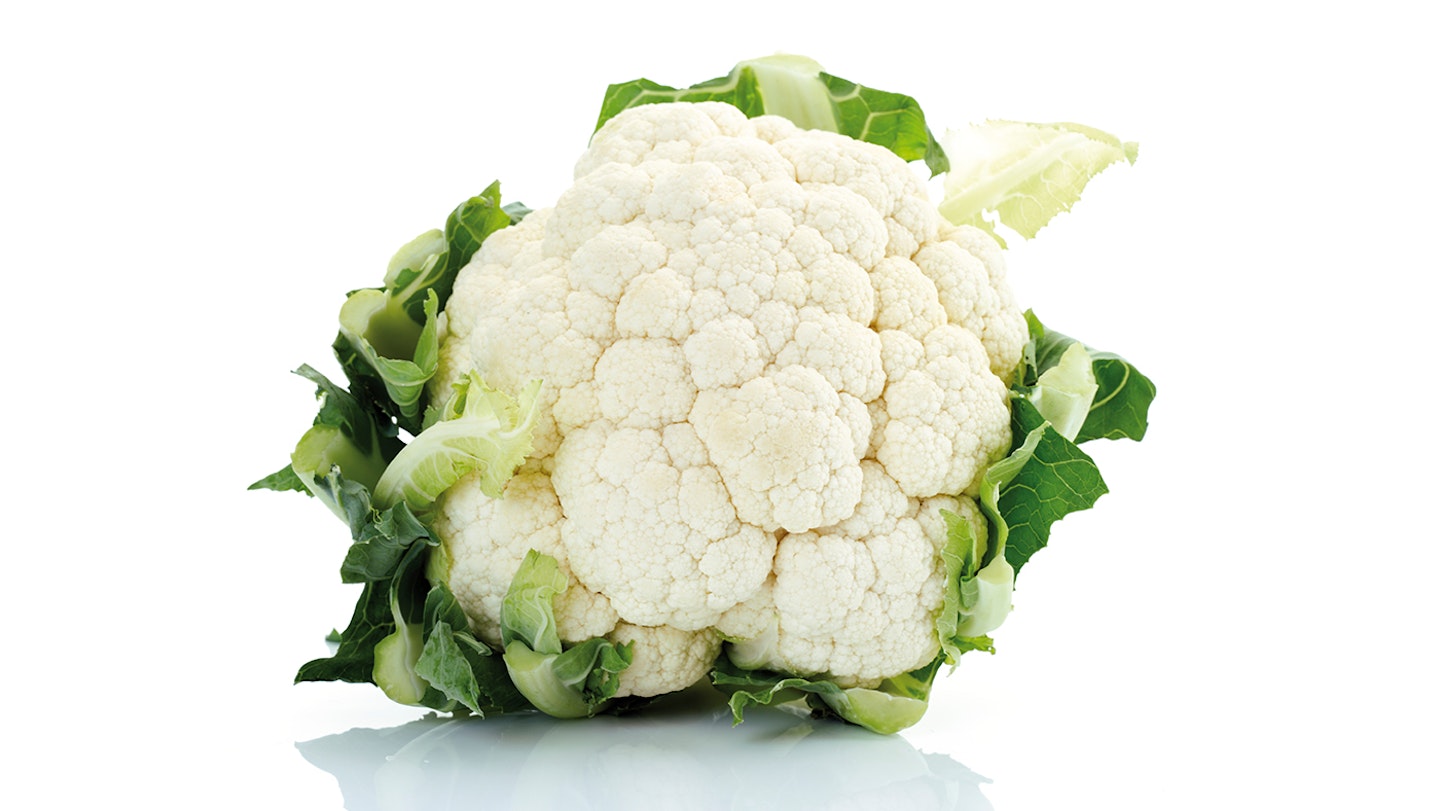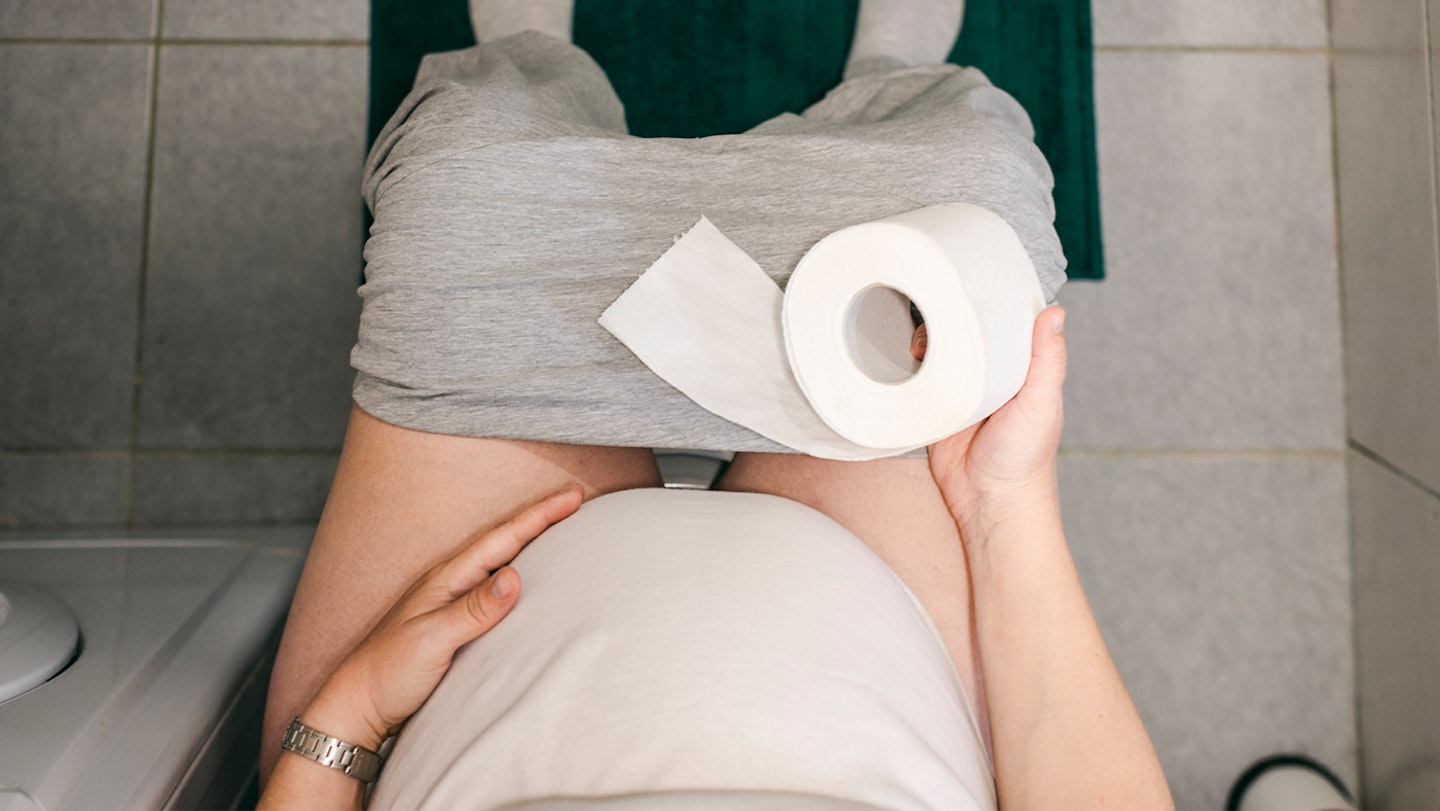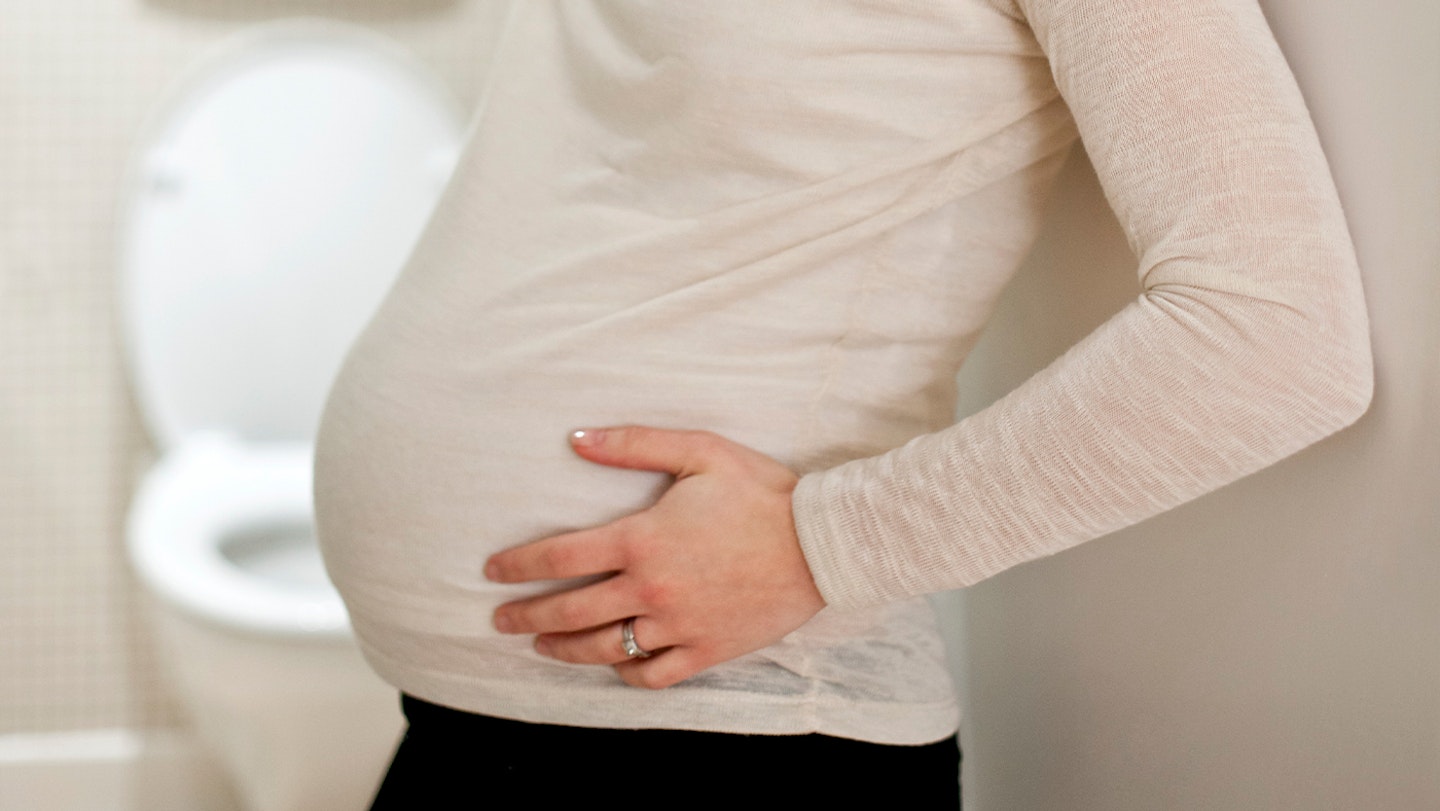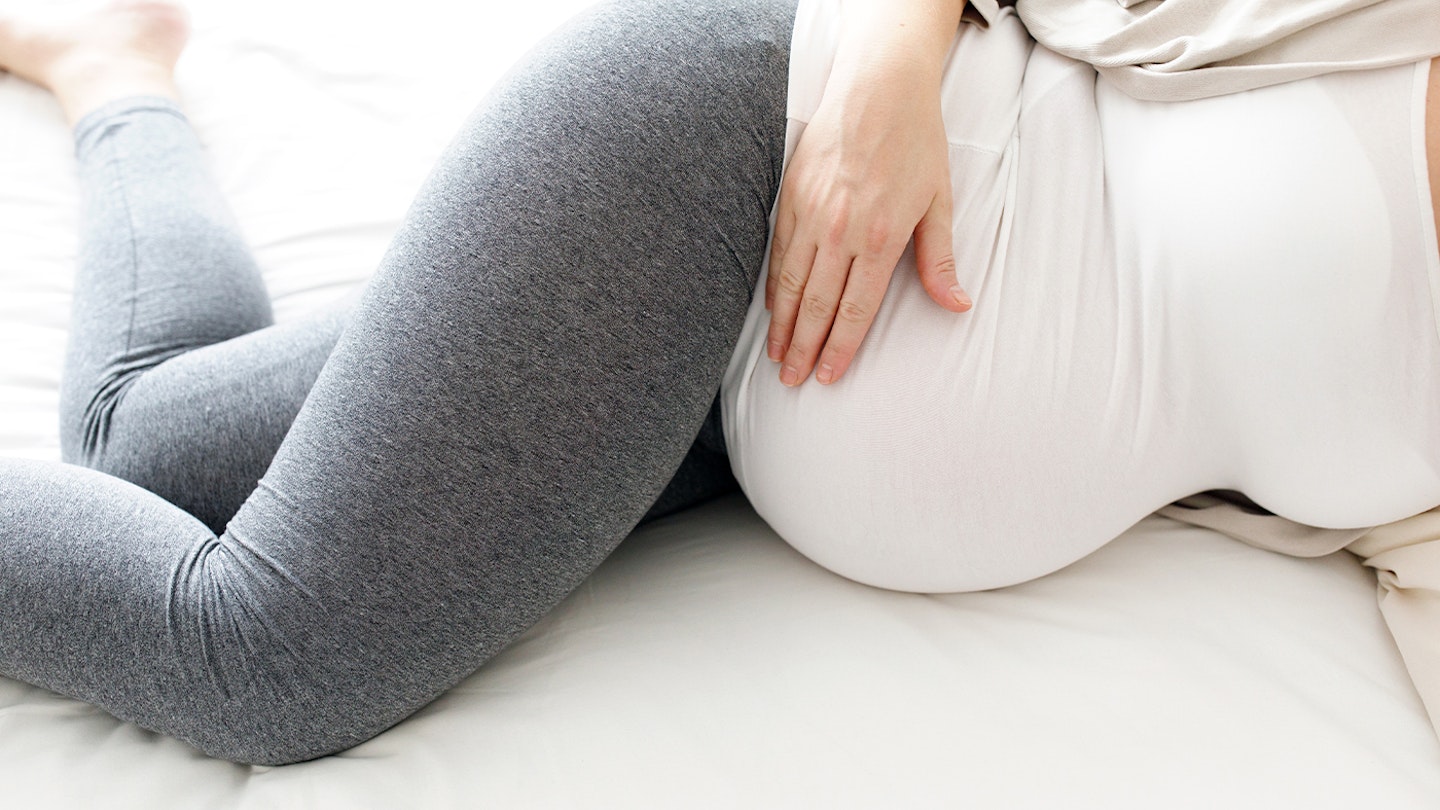At twenty-five weeks pregnant, some sleepless nights are in store as the pregnancy insomnia kicks in, and your baby’s fingerprints have appeared. Find out more about what your baby and body are doing and the common symptoms to look out for at 25 weeks pregnant.
How big is my baby at 25 weeks?
We’ve gone through a whole fridge of the foods your baby has resembled in size, but this week, they're about the size of a cauliflower or swede. At about 13 and a half inches long and one and a half pounds heavy, baby is growing steadily.

What’s my baby doing at 25 weeks?
Your baby’s becoming more beautiful than ever: as the weeks go on, baby fat is developing, meaning their wrinkled skin is smoothing out and they're looking more like a newborn than ever. They've even starting to grow some hair, too.
Your baby's skin is also getting pinker as the capillaries form under the skin and fill with blood. Blood vessels will also develop this week in your baby’s lungs, bringing them ever closer to that first gulp of fresh air they'll take after being born.
This week also marks the start of your baby’s nose and nostrils beginning to work, which allows your baby to begin taking practice breaths, breathing in amniotic fluid. They may even be able to smell things by this week too, although many babies can only experience this sense by the third trimester.
Your baby’s hands will develop creases in the palms this week (cute!), and soon sweat glands will form in the skin.
They’ll also have their own unique fingerprints: they’ll have started forming as early as eight weeks. Your baby will also be improving the dexterity in their hands and fingers, which means they’ll be able to grasp things in their fist and even play with her umbilical cord. Baby may also suck their thumb and play with their hands and feet. Just think, not long until they're gripping your finger in that little fist!
11 common symptoms to look out for at 25 weeks pregnant:
 1 of 11
1 of 111) Finding it hard to move around
Now that you’re getting bigger, it’s understandable that it’s more of an effort to move around. Chat with your doctor about which types of exercise are safe, but make sure you’re following a few rules: don’t work out when you’re tired, and stop immediately if you feel pain, shortness of breath or dizziness. Don’t lie flat on your back and try to avoid contact sports.
 2 of 11
2 of 112) Heartburn
You know the deal by now, your baby is pushing against your digestive tract which can cause stomach acid to come up in your throat. Avoid any foods that trigger it and check with your doctor about using antacids.
 3 of 11
3 of 113) Bloating and gas
Your hormones are still slowing down your digestion and causing this pesky symptom. This is coupled with the fact you really are puffing up and bloating as you and your baby grow.
 4 of 11
4 of 114) Insomnia
Some women find it difficult to sleep once they've entered by the second trimester. This can be down to hormones, your uncomfortable growing body or your general nerves about the pregnancy. Turn off your devices by 8pm to prevent the bluelight keeping you wide awake and ensure your bedroom is properly dark. If you're struggling, getting up and having a walk around the house is better than lying in the same spot getting more and more frustrated.
 5 of 11
5 of 115) Restless legs
15 per cent of women experience the peculiar effects of RLS, which include a tingling feeling in your feet and legs, along with an urge to move them. Experts aren't sure what causes it, but many women are helped by different methods, such as acupuncture, a warm bath or eating iron-rich foods.
 6 of 11
6 of 116) Constipation
This is something that women struggle with the whole way through pregnancy. Exercise lightly to get things moving, eat healthy fibrous foods and keep drinking water!
 7 of 11
7 of 117) Haemorrhoids/piles
These have been a common symptom over the last few weeks. We really understand that these can be one of the worst, most annoying and embarrassing symptoms. The oh-so-unwelcome haemorrhoids you may be noticing in the rectal area, caused by increased blood flow to the area as well as your enlarged uterus. Avoiding constipation is a good idea as this will only make the piles worse, so make sure you’re stocking up on fibre-rich foods and drinking plenty of water.
 8 of 11
8 of 118) Frequent urination
Have you noticed how many of the symptoms now revolve around the toilet? The growth of your baby is crowding the bladder and increasing the urge to go to the loo. Don't stop drinking though as it is super important to stay hydrated!
 9 of 11
9 of 119) Gorgeous hair
We've already warned you about this TERRIBLE symptom - we jest! Finally, a pregnancy symptom you wish would stick around! Your hair may be fuller and glossier than ever thanks to pregnancy hormones keeping a hold of hair you’d normally shed. Enjoy it while it lasts!
 10 of 11
10 of 1110) Bleeding gums
A common but unpleasant side-effect of pregnancy, bleeding gums may affect you this week. Make sure you’re brushing your teeth at least twice a day and flossing regularly, and if you’re concerned, see a dentist to talk through your worries.
 11 of 11
11 of 1111) Braxton Hicks
These uncomfortable pains probably aren't going anywhere. Braxton hicks practice contractions often begin at around 28 weeks but some mums suffer earlier. Luckily, they shouldn't be frequent and should go away when you swap positions.
Things to avoid at 25 weeks pregnant
Sleep - Avoid sleeping on your back as this has been linked to a higher risk of stillbirth. Sleep on your side and if you wake up on your back, move onto your side.
Healthy diet - you might notice this week that you really start to gain some weight. Although you never want to lose weight in pregnancy, it's essential to try and eat a healthy diet in pregnancy and avoid any processed or unhealthy foods.
Oral care - it's common to find your gums are bleeding in pregnancy this week, so avoid sugary and acidic drinks and foods and speak to your dentist about any concerns.
Haemorrhoids - Although they're very common during pregnancy, piles can be very uncomfortable, so aim to opt for food with plenty of fibre and avoid foods which tend to block you up such as processed foods, dairy products, red meat and fried or fast food.
What to do this week
The birth plan: Now’s a good time to start thinking about where you’d like to give birth. There are generally three choices although they vary depending on where you live (and nope, a luxury five-star hotel is not one of the options!). The first is a regular maternity ward, where you’ll be looked after by midwives, but there’ll also be obstetricians on the wards if needed. The second is a birth centre. These can be attached to hospitals or standalone, have a more ‘homely’ feel and are run by midwives, but there’s no immediate access to things like epidurals for pain relief or C-sections. Finally, you can give birth at home. This is available if you’re having a low-risk pregnancy. Picking your birth centre does require a lot of thought and you really need to research what’s available to you before making any definite decisions.
